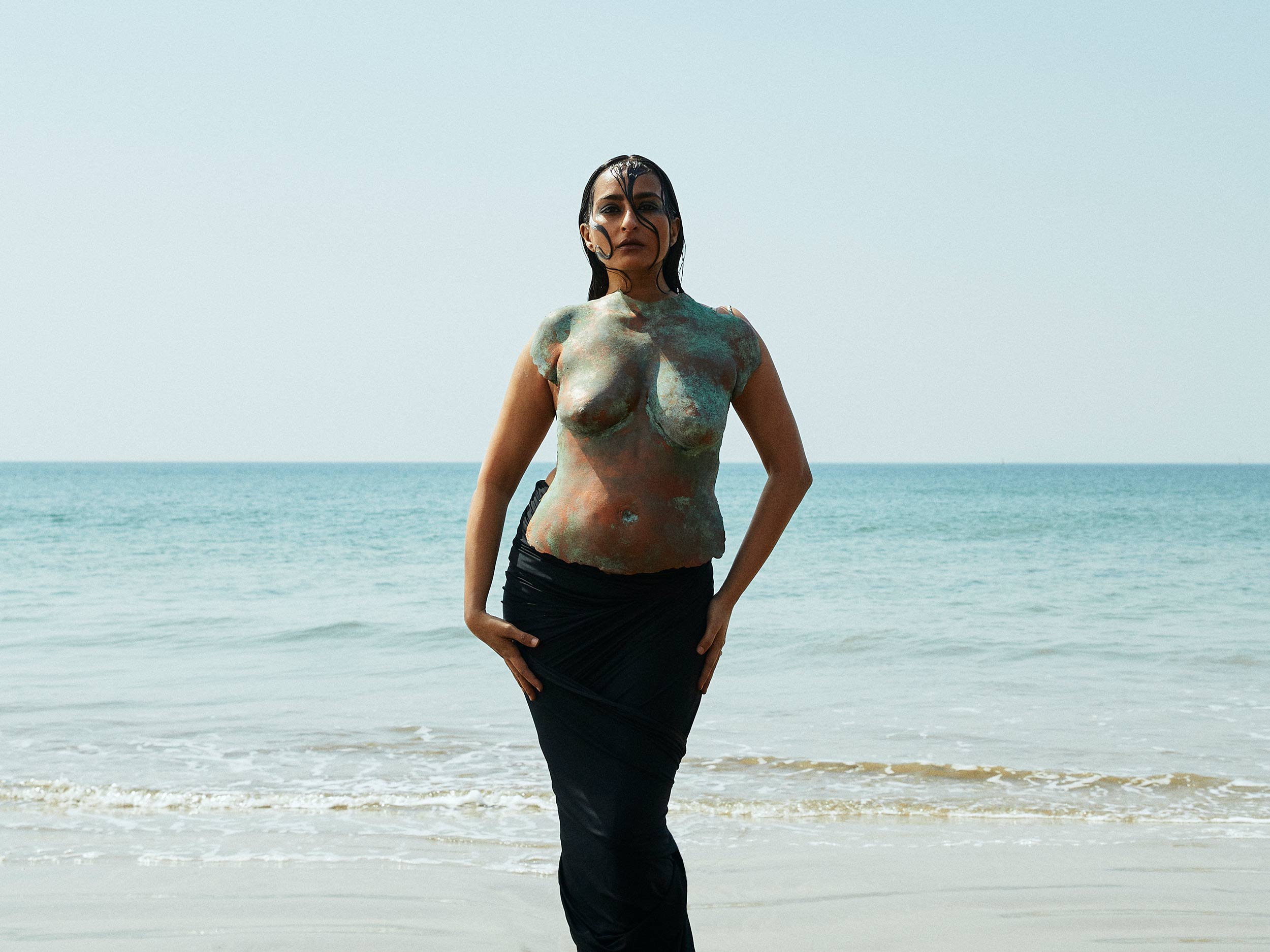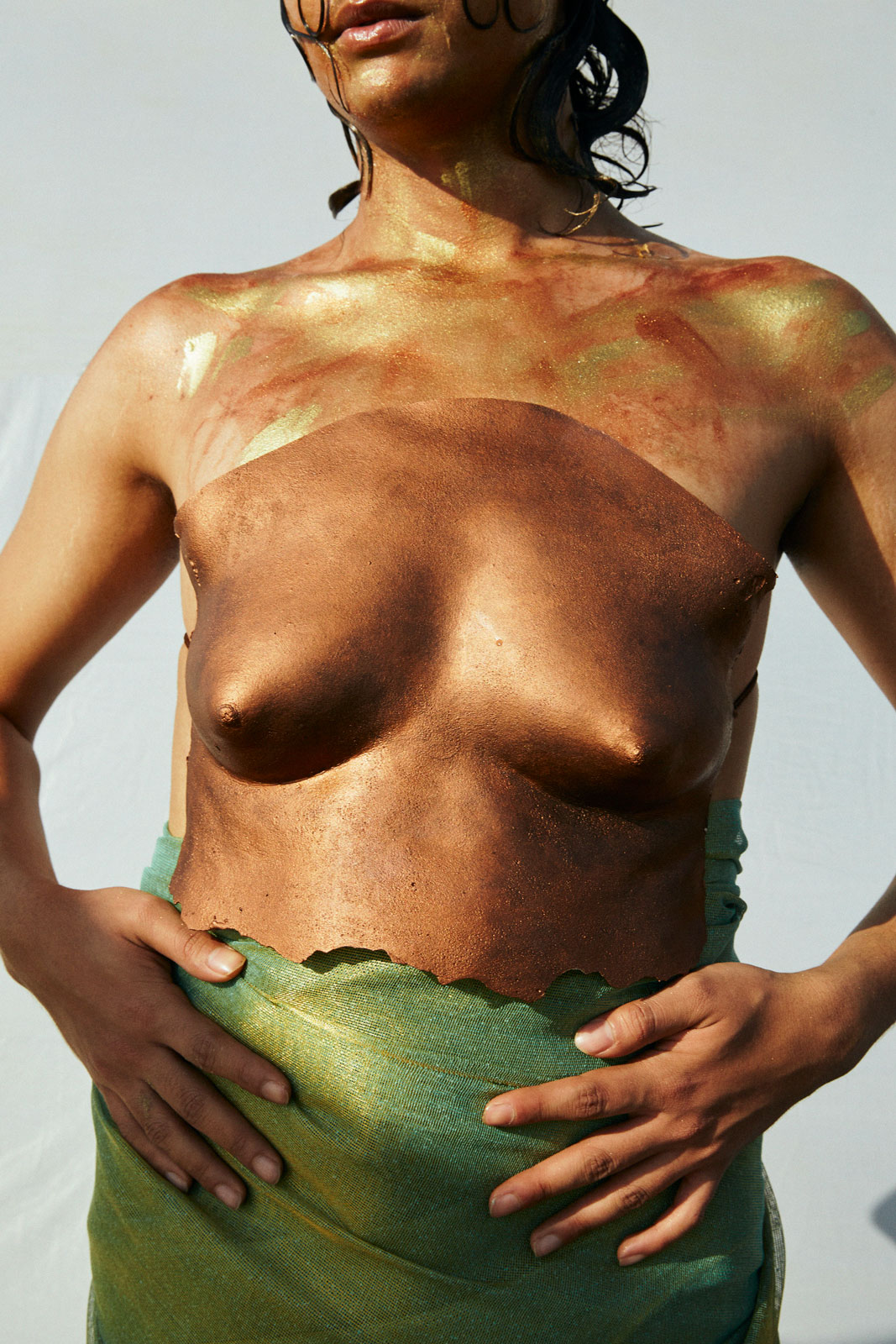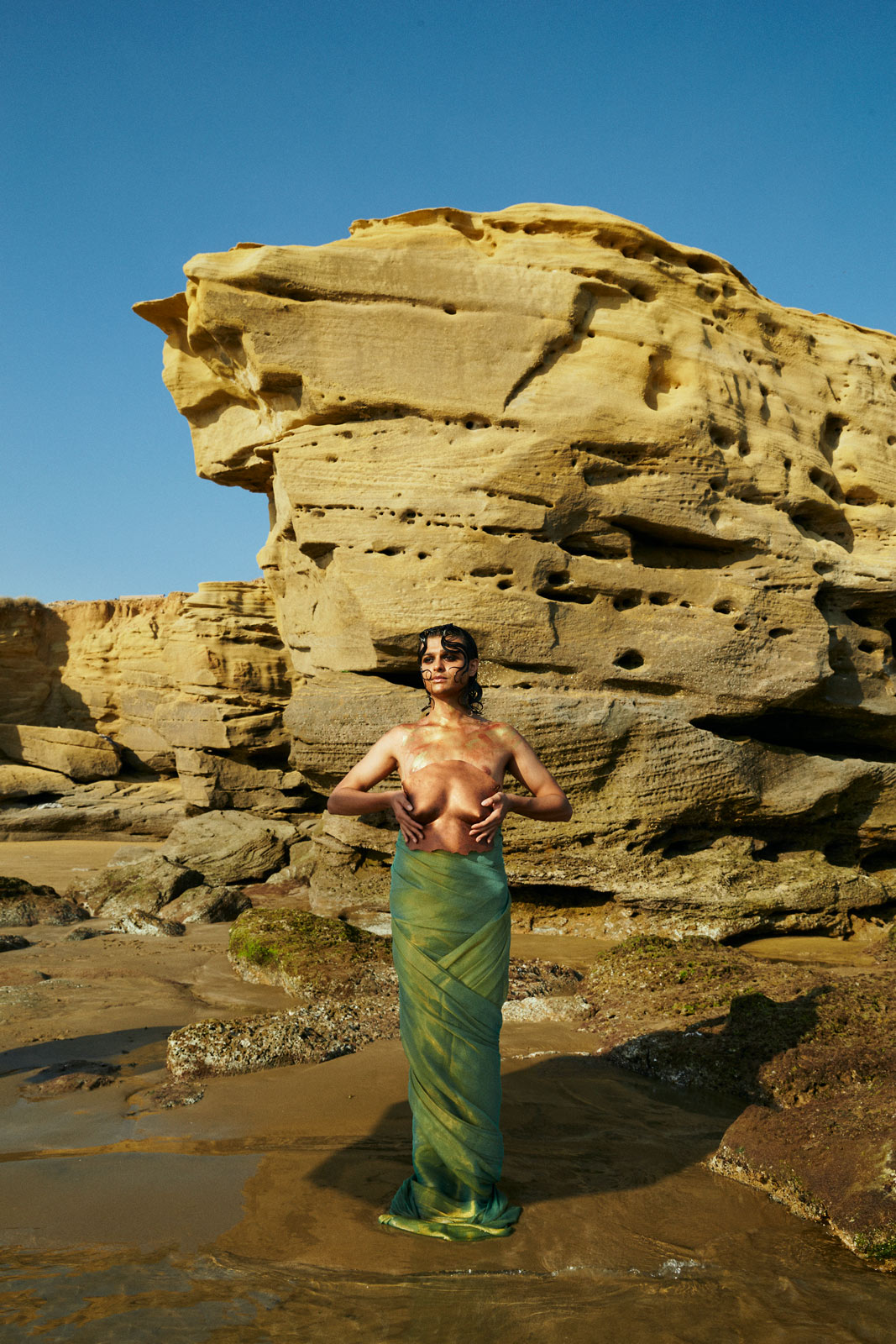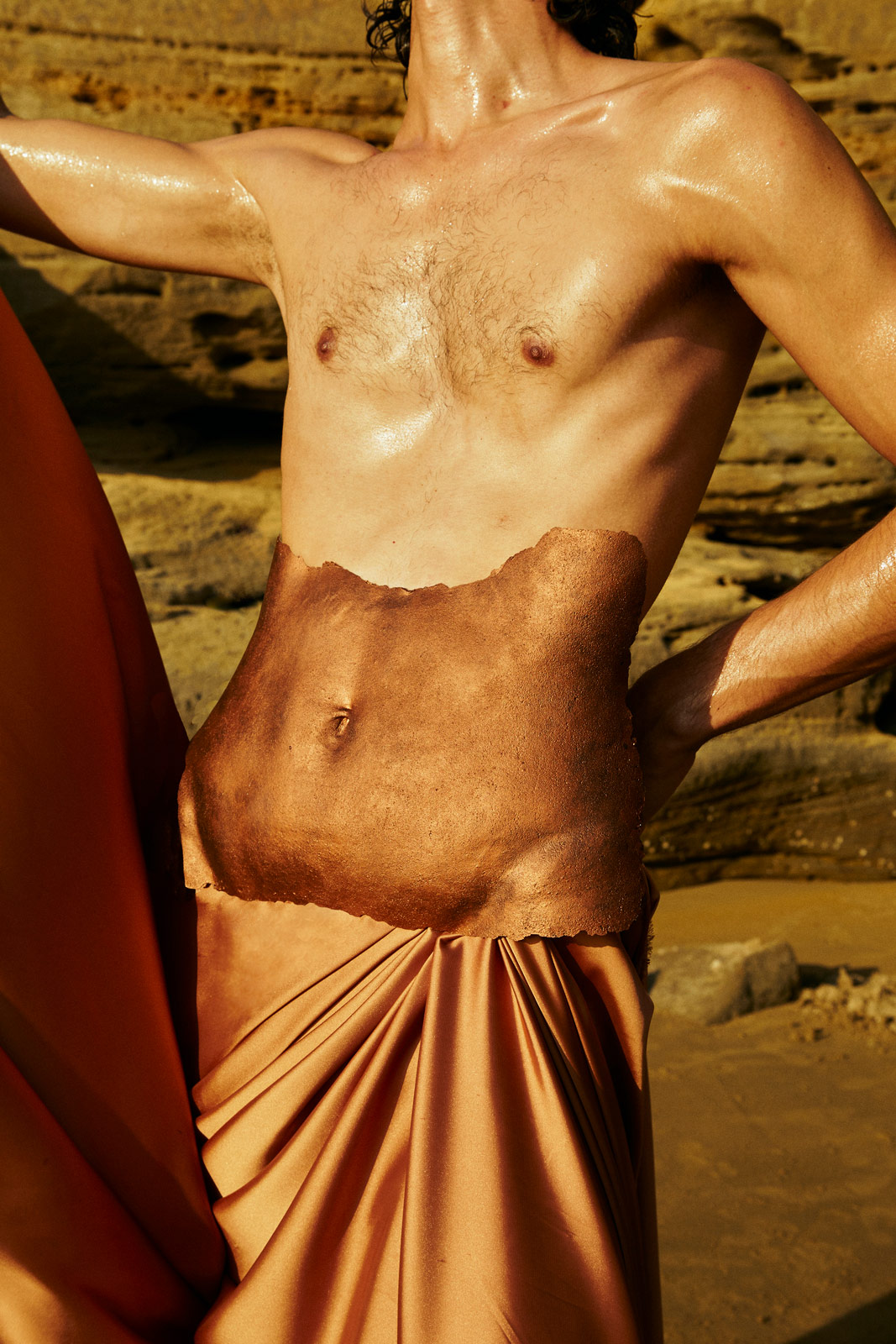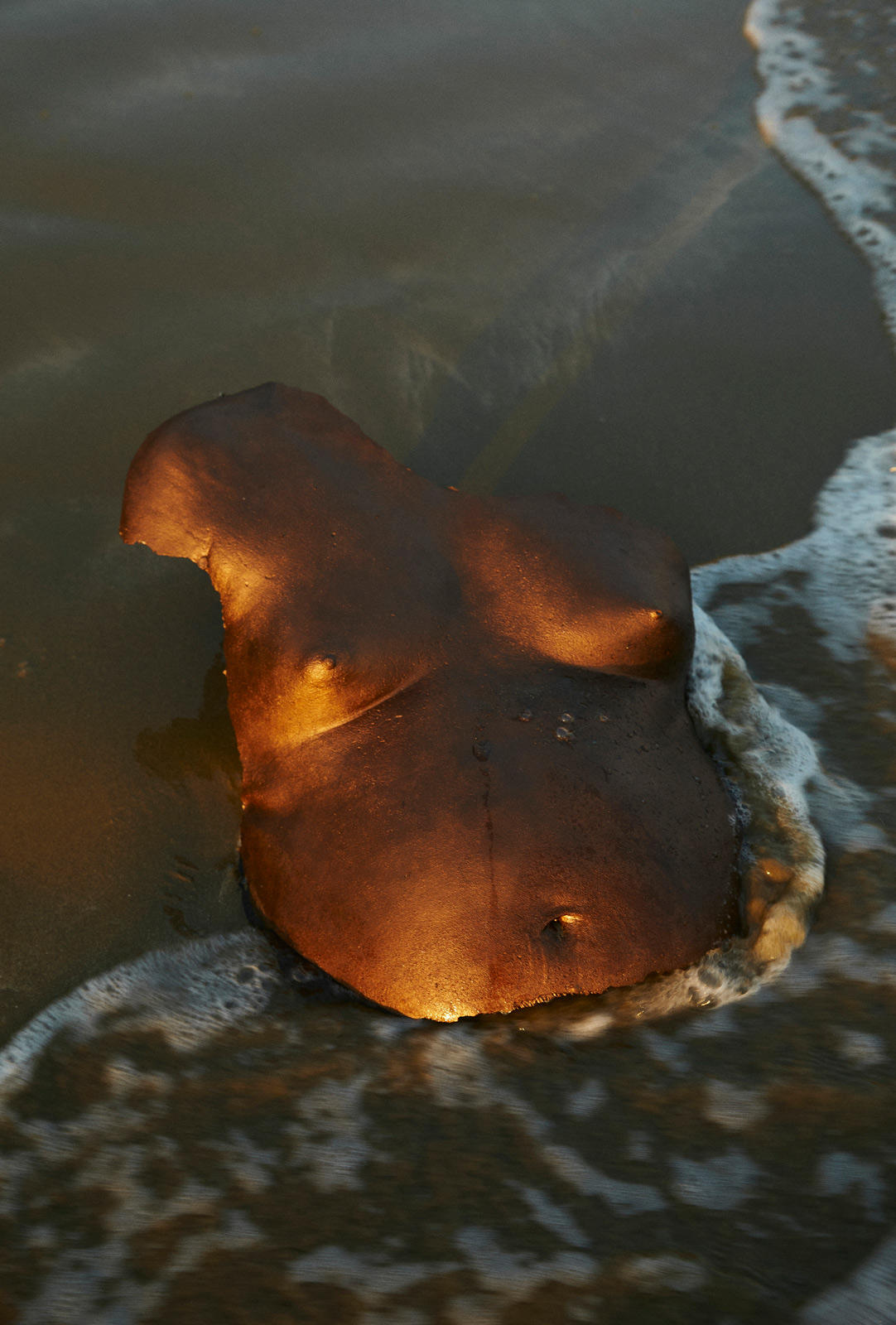In her new exhibition, the artist documents the bodies of those who have worked to forge a more liberated society in her native Karachi
When Misha Japanwala began sharing her sculptures, she was called every insult in the book—but there’s one, in particular, that stood out to her: beghairat, the Urdu word for ‘shameless.’ “My first collection was about exploring my place in the world, and what it meant for me to exist in my own body as a Pakistani woman,” she says. “The negative response speaks to the dangerous undertones of the dominant culture, and how that translates to real-world violence against people who dare to live their lives on their own terms.”
Japanwala is from Pakistan, where she says shame is frequently wielded as a form of social control—specifically against women and other minorities. “Karachi is one of the world’s most populated cities, and yet women and trans people are never seen in public spaces. They’re not welcome there, because they live in a culture that is unwelcoming toward their very existence,” she says, explaining that—having witnessed this striking absence—she was inspired to extend her project beyond her own experience, and document the diverse bodies and identities of queer, femme, and nonbinary people in Karachi.
The resulting artwork is now on display in Japanwala’s debut solo exhibition at Hannah Traore Gallery, titled Beghairati Ki Nishaani–or ‘Traces of Shamelessness.’ Composed of sculptures molded directly from the bodies of the artist’s muses, the show presents a historical record of those fighting against oppressive political forces—compiling a visual archive of their resilience, and reclaiming the notion of what it means to live without shame.
In one series, Hands of a Revolution, Japanwala molds the hands of individuals working to forge a more liberated society: from artists and activists like the filmmaker Sharmeen Obaid-Chinoy, to Dua Mangi, a Karachi native who was subject to slut-shaming after being abducted in 2019, and is now studying law with the goal of championing the rights of women and minorities. For another series, Japanwala invited femmes in Karachi to anonymously participate in her work by having their nipples molded—and was overwhelmed by the number of friends and strangers who showed up at her studio, willing to share their bodies, their experiences, and their thoughts about the social structures governing them.
The resulting casts act as evidence of the ways identities, bodies, and history are intertwined. One woman, who was battling cancer, came to have her nipples cast before they were surgically removed the following day; another had undergone a double mastectomy, and allowed the artist to mold her scars; a young trans woman participated as a means of forging a new relationship with her body. “Inverted, pierced, scarred, and textured, these interlinking nipple moldings form a dupatta, a chainmail of people who dare to live on their own terms,” states the gallery in a press release, noting that—while developing this body of work—Japanwala explored artifacts from the Mohenjo-daro and Harappa civilizations of the Indus Valley, which include countless depictions of trans and nonbinary bodies of all shapes and sizes, revealing a civilization with a historically diverse spectrum of identities. Faced with both rising sea levels and the authoritarian threat of Pakistan’s current government, Japanwala imagines her work as a similar time capsule: one that, if excavated hundreds of years in the future, would speak to the diverse realities of its people.
That’s not to say that social shame is not an issue in the West. The ways in which it is weaponized within capitalism are just more insidious. So, too, are issues of censorship: Japanwala, who prides herself on honestly documenting her subjects’ bodies, has often had images of her sculptures removed from Instagram. As works of art, they shouldn’t technically be setting off the censorship tripwire—yet, such platforms have been accused of disproportionately cracking down on bodies that don’t fit dominant cultural standards, speaking to the forces that determine which bodies, and identities, are considered acceptable.
Japanwala credits her work with helping her recontextualize her own relationship to shame, and the toxic messages she was exposed to growing up in Karachi. “Other people have so much to gain by shaming our bodies,” she reflects. “I’ve come to the understanding that being truly shameless is one of the most beautiful things we can do for ourselves and our bodies.”
Beghairati Ki Nishaani–or ‘Traces of Shamelessness’ is on view at Hannah Traore Gallery through July 30th, 2023.


